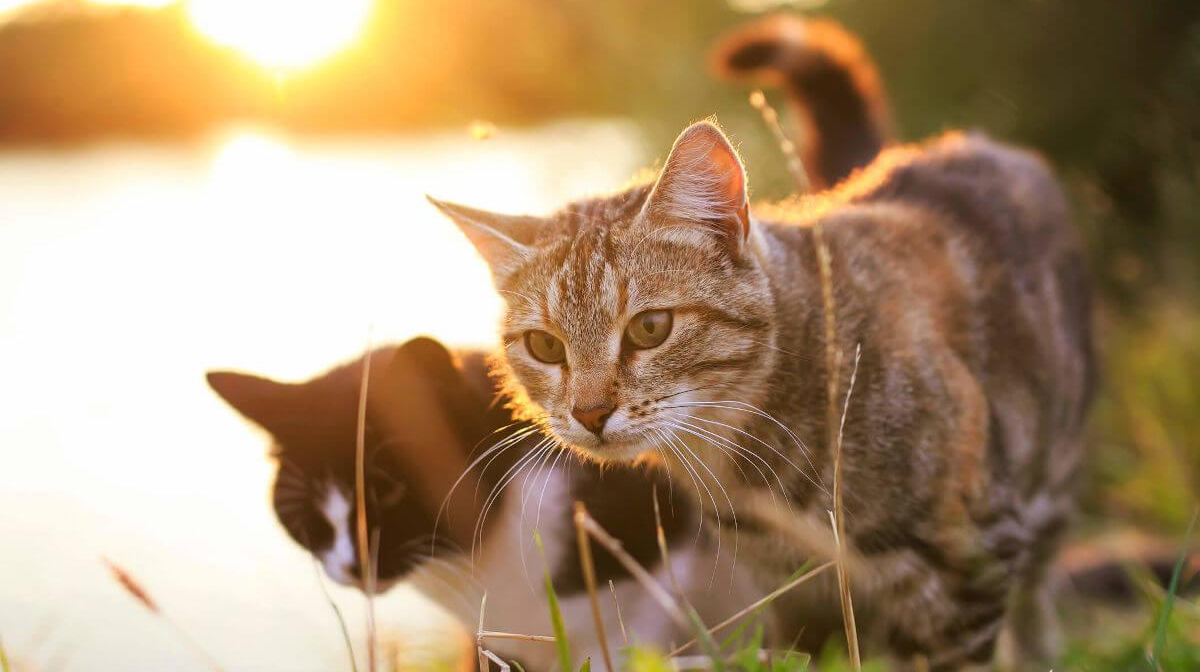
Whether you’re a new kitten owner or someone who’s had a cat for a while, it’s important you are familiar with cat vaccinations. These not only help protect your pet from severe infectious diseases but also work to prevent them from transmitting anything nasty to other animals.
So, how exactly do you go about getting your cat vaccinated? James Wellbeloved has put together a cat vaccination schedule and some tips to help you prepare for when your feline friend needs to have theirs done.
VACCINATING YOUR KITTEN
Cat vaccination is crucial if you want a happy, healthy cat at home. By vaccinating your kitten, you will help to protect them against serious and/or life-threatening diseases such as:
Feline Herpesvirus (FHV) and Feline Calicivirus (FCV) – both of which can cause Cat Flu
Feline Parvovirus (FPV)
Chlamydophila Felis
Bordetella Bronchiseptica
A fully qualified vet will be able to administer core vaccinations to your kitten, which will help protect them not only as they’re growing but right through their lives. This is usually done via two injections, 3-4 weeks apart, from around eight weeks of age, so you’ll want to arrange an appointment for them as soon as they’re old enough.
HOW OFTEN SHOULD YOUR CAT BE VACCINATED AFTER THEIR FIRST VACCINATIONS?
After their first two vaccinations as a kitten, your cat should receive a regular booster one year on from the second injection. If boostered on time, all subsequent vaccinations will be annual. Any non-core vaccinations administered early in your kitten’s life will also need to have scheduled boosters, which may be required at different times depending on the injection date.
The vet will put an an appropriate cat vaccination schedule in place that caters to your feline friend’s individual needs.
OTHER VACCINATIONS YOUR CAT CAN GET
A healthy cat will almost always benefit from additional vaccinations to ensure they are protected against as many serious diseases as possible. Other cat vaccinations to consider scheduling them for include:
Feline Leukaemia Virus (FeLV) – spread by close contact with other cats, this particularly nasty disease can cause cancers, anaemia, vomiting and diarrhoea; highly recommended to have alongside core vaccines
Rabies – required for cats travelling abroad or entering the UK from abroad
If you’re concerned about which vaccinations your cat should have, or are worried they may be susceptible to certain diseases, get in touch with your vet immediately.
DOES YOUR VET NOTIFY YOU ABOUT A POSSIBLE CAT VACCINATION SCHEDULE?
Just as every cat is different, so is every cat vaccination schedule. Fortunately, your vet can give you good advice about ensuring you keep up to date with their latest vaccinations – and perhaps even provide reminders as to when they are due.
Nevertheless, it’s ultimately your responsibility to stay on top of your cat’s health. You should therefore take every step to remember when they were last vaccinated, and if you own a kitten, to make an appointment with the vet as soon as they are old enough to be vaccinated for the very first time.

WILL YOUR CAT RECEIVE THE SAME BOOSTER VACCINATIONS EVERY YEAR?
As with any other immunization protocol, a cat vaccination schedule depends upon a variety of factors, there is still plenty you need to be doing for your cat. These include:
Type of vaccine – it may be that the previous booster is still enough to keep your cat healthy and protected
Your cat’s age – cats older than 8 to 10 years of age may require more staggered boosters to support their immune system
Changes to current law – if any alterations have been made, a vet will inform you about what this means for your cat’s vaccinations
Risk of local epidemic – this applies to a significant number of potentially sick cats in your area; in which case your vet will likely be in touch with an action plan
Your vet should know which vaccinations they will need, and be able to explain exactly what diseases they’ll be protected from at each appointment.
WHAT DOCUMENTATION DO YOU NEED IF YOUR CAT HAS ALREADY BEEN VACCINATED?
It may be possible to request your cat’s vaccination records from the vet; however, this is simply a way for you to keep track of when they were last vaccinated and when they are due for a booster. The vet should have all the information necessary to prepare for your cat’s next round of vaccinations, so really all you need to remember is to make a note of them on your calendar.
While there’s no one-size-fits-all approach to cat vaccinations, we hope our cat vaccination schedule gives you some idea of what to expect and how you can safeguard your pet at every stage of their life. Of course, if you’re concerned about your cat’s health and wellbeing at any point, no matter what age they are, you can always contact a vet for their professional guidance.

Related Articles








